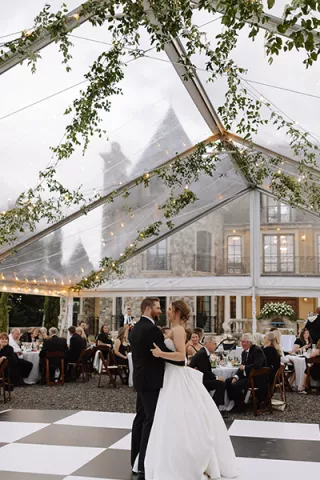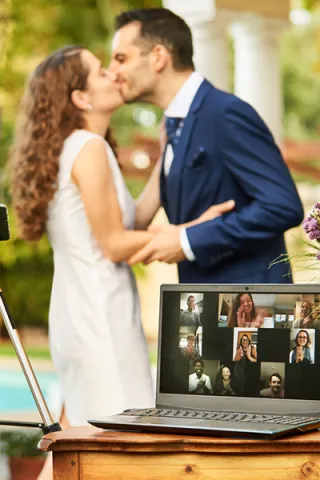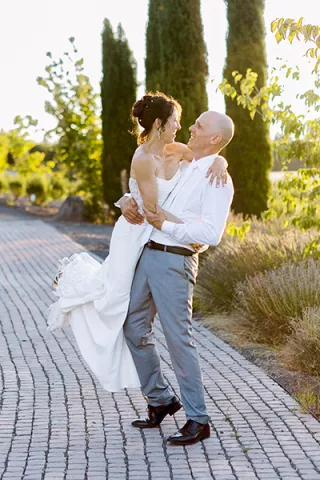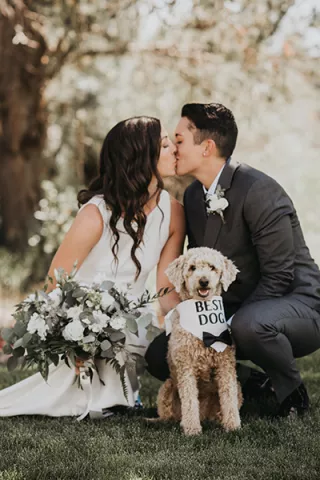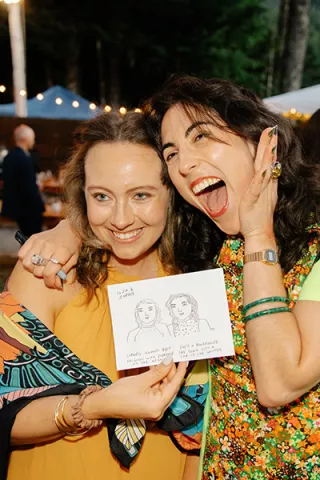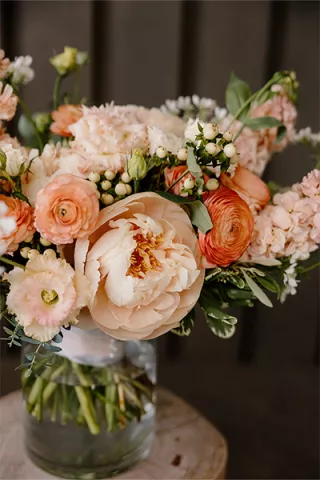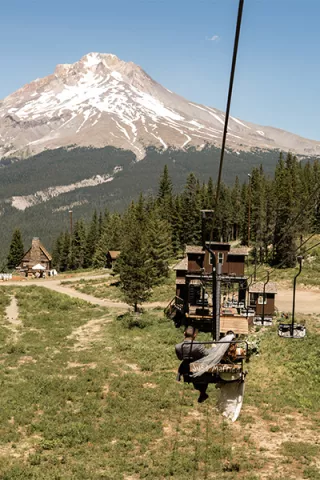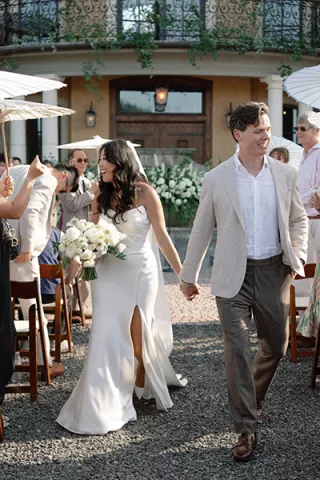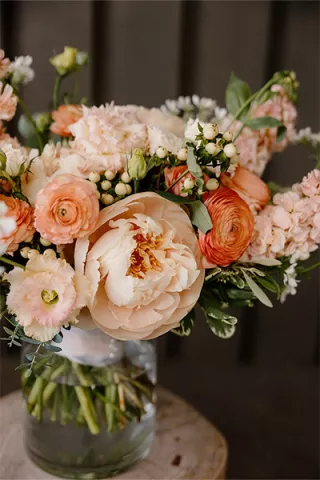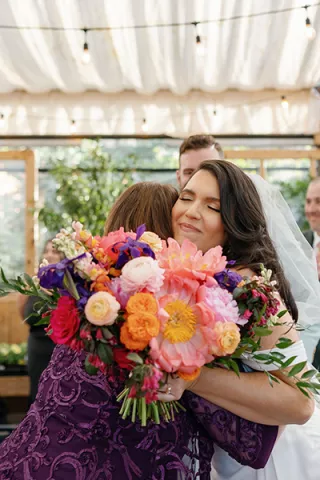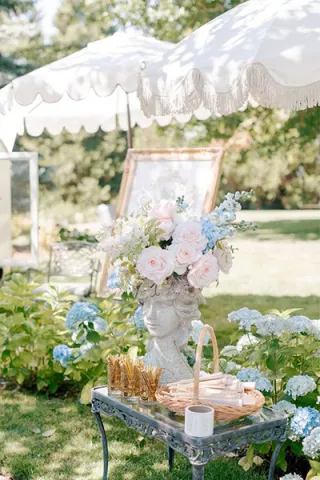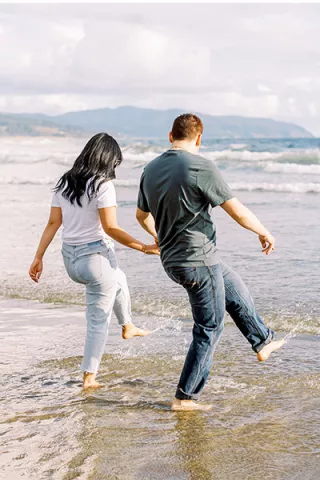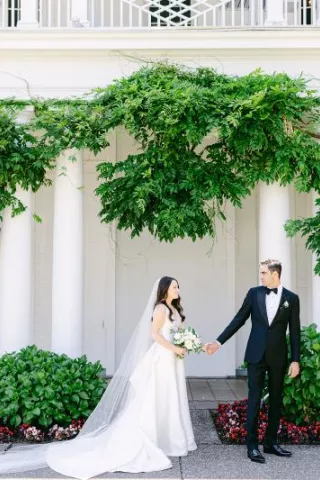Sustainability has become a major trend in the wedding industry - and for a good reason. Gone are the days of throwing away untouched tiers of cake, using excessive amounts of paper goods and not questioning from where your vendors are sourcing products. Luckily for couples in the throes of wedding planning, there are so many choices that honor Mother Earth without sacrificing luxury or style. From reusable signage to eliminating food waste, four of Oregon’s wedding experts weigh in on simple strategies that make a big impact on your big day.
FIND YOUR DREAM TEAM
Wedding planner Amanda Galbraith of Amanda Claire and Company emphasizes that your wedding should reflect who the two of you are as life partners. “If living a sustainable lifestyle is important, your wedding day should absolutely surround this concept,” she says. This starts with choosing a location that reflects your passions. “For the adventurously hearted and eco-friendly focused couple, eloping at a meaningful location is an incredible way to start your life journey together.”
Bringing your vision to life is step two, and choosing the right team is key to achieving this. “Be extremely mindful of who you decide to hire,” Galbraith continues. “An elopement takes a fair amount of planning, and choosing an experienced team that shares the same eco values will make your wedding day go a lot smoother. Your hired professionals will be able to source permits, help you pack accordingly, build a timeline that completely encompasses your love story, coach you on no-trace policies and help you every step of the way to ensure you are respecting the land.”
CHOOSE AN ECO-CONSCIOUS CATERER
Food can become a huge source of waste at weddings, but it doesn’t have to be. Galbraith recommends asking your caterer or private chef these important questions: “Do they purchase local produce? Do they plan meals seasonally? Do they have plant-based options? Do they offer recycling or composting bins on-site, or recommend a local green trash service?” Together, these solutions can greatly reduce your event’s environmental impact.
Nick and Noelle Amaya Bell of Renegade Catering are prime examples of caterers striving to embody this. They always seek to “minimize food waste, avoid bleached cardboard and use biodegradable plasticware,” with the goal of completely eliminating food waste throughout their entire chain of service.
Wedding planner Danielle Nichole Phan of Danielle Nichole Events encourages renting items versus using disposables. “If renting is not an option based on theme and location of wedding,” she says, “then I suggest purchasing palm leaf dishware and biodegradable flatware as well as recyclable cups.”
GO LOCAL
Local, local, local. Renegade Catering shares this sentiment, advising that “couples should educate themselves on the value system and food philosophy of their caterer. If that isn’t possible, you can’t go wrong with supporting local businesses who use local ingredients—if you’re truly concerned about ‘ecofriendly,’ this is where it starts.”
The benefit of sourcing locally is supporting local communities, and for florist Jodi Iverson of Jodi Iverson Florals, the local farms for sustainably sourced flowers. “The Portland Flower Market is made up of many small farms that grow high-quality flowers. I know that I am getting flowers with minimal storage and transportation time, which helps the quality of the flowers upon arrival.” Growers typically prepare for each wedding season, giving florists plenty of time to create the most beautiful pieces for each celebration.
FOCUS ON SIMPLE CHANGES
When it comes to being eco-conscious, couples don’t need to look far. Some simple changes Phan mentions are “using chalkboard signs, wooden signs, mirror signs or acrylic signs for welcome signs and signs for areas like the gift table or desserts table. This helps with having to use paper signage that you have to toss at the end of the night.”
Galbraith proposes finding “a ring with little or no environmental impact by going vintage. Consider reusing or recycling a lovely ring, perhaps a family heirloom!” In the spirit of reusing, Iverson likes to use “recyclable materials such as glass and chicken wire” in her floral arrangements. She also composts any remaining greenery and recycles floral packaging. Additionally, “When I break down bouquets after an event,” she notes, “I like to recover any plastics that can be reused such as trays and liners.”
Oregon event experts share their tried-and-true tips for an eco-friendly, sustainable wedding.
Written by
Brittany Nguyen
Published:
Oregon Bride Spring/Summer 2022

